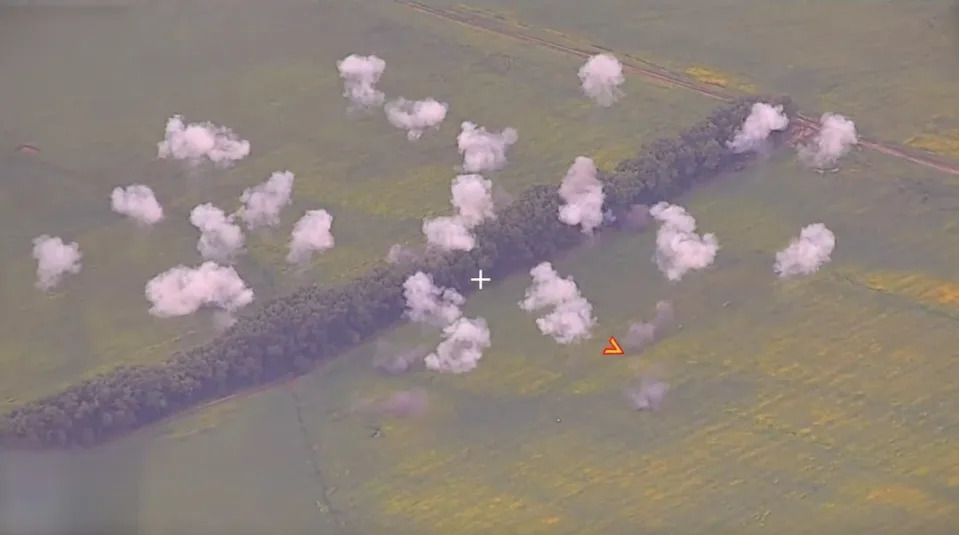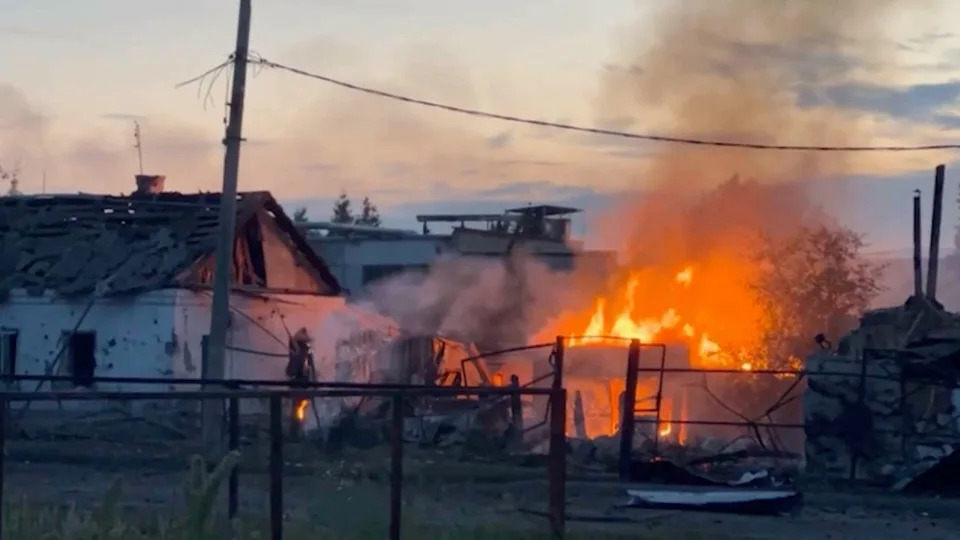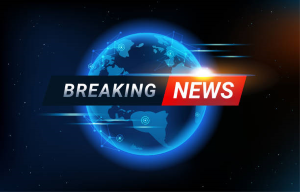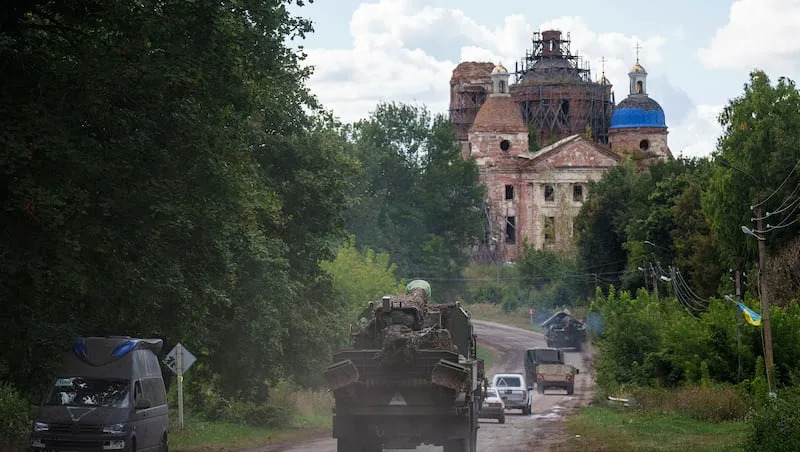-
With Ukraine on defense on the front lines, it should experiment with catching Russia off guard, war experts say.
-
Its ongoing incursion into the Kursk region of Russia has given Ukraine some newfound initiative.
-
Ukraine has achieved repeated shock victories against Russia in scrappy, unexpected ways.
Ukraine faces a challenging defensive fight on the front lines for the foreseeable future, but that doesn't mean it can't get in a few good hits of its own against Russia.
While it waits to amass the ammunition, manpower, and resources to launch a large-scale, well-timed counteroffensive, Ukraine should experiment with ways to take the initiative and gain momentum, war analysts say.
Conflict experts from the American Enterprise Institute and Institute for the Study of War, Washington DC-based think tanks that have closely monitored the conflict, wrote in a new report that Ukraine should focus on conducting unexpected, shock upsets against Russia while the battlefield situation remains largely unchanged.
"Ukraine faces enormous challenges today and in the months to come," AEI's Frederick Kagan and ISW's Kimberly Kagan wrote with support from several other ISW conflict analysts. "Ukrainian forces," they argued, "are very unlikely to be able to initiate significant counteroffensive operations in 2024 and into 2025."
"Their ability to do so at all still rests on the accelerated and sustained provision of Western security assistance and the lifting of restrictions on the use of that assistance as well as on their ability to sustain an improved mobilization and training system," the Kagans wrote.
But that reality does not mean Ukrainian forces should, as the authors of the report noted, "plan simply to remain on the defensive for the indefinite future while trying to amass the resources needed for a counteroffensive."

Rather, Ukraine should use this period as "a time of experimentation," they said, explaining that doing so "should increasingly let Ukraine challenge Russian forces for the initiative in parts of the theater while exploring opportunities for future, more substantial counteroffensive operations as conditions permit."
Such a strategy isn't necessarily new for Ukraine, which has repeatedly found ways to deal unexpected blows to Russian forces despite a grueling ground fight.
These actions include the Kharkiv counteroffensive, long-range drone strikes into Russia, and devastating naval drone operations in the Black Sea, among others, but perhaps the most prominent example is the ongoing Ukrainian surprise invasion of the Kursk region of Russia, a shockingly complex mechanized assault into enemy lands that has left Moscow scrambling.
Ukraine's intentions in this assault appear unclear, although recent comments from Ukrainian officials, such as a post on X from President Volodymyr Zelenskyy, suggest Ukraine hopes to hold the territory as a bargaining chip, something to trade for Russian-occupied territory in Ukraine.
Although details on the Ukrainian invasion are still limited, Commander-in-Chief Oleksandr Syrskyi told Zelenskyy on Monday that Ukraine's troops had seized just under 400 square miles of territory, about the same amount Russia has captured in Ukraine this year.

Kyiv has played its cards close to the vest on this assault, keeping secret its plans, including from close partners like the US, suggesting that it can pull off surprise attacks that allow it to, at least temporarily, take the battlefield initiative.
Ukraine has grappled with leaks, attributing some of the failures of the 2023 summer counteroffensive to this problem, as well as constant battlefield reconnaissance and surveillance that makes it difficult to maneuver. But the battlefield is not completely transparent, as some observers have argued, and surprises are still possible. The initiative can be retaken.
The Kagans argued in their report that Ukraine cannot "resign itself to the supposed reality of permanent positional warfare" because doing so "will not liberate the strategically vital lands Ukraine must win back in order to be secure against future Russian aggression."
"It will also protract the war and dramatically increase its costs to Ukraine and to Ukraine's supporters," they said. "Ukraine should thus seek every possible way of restoring maneuver to this war as soon as possible, daunting though that task appears."
The Kursk invasion caught the Kremlin off guard, either because it didn't detect it or adequately respond to it initially. And it has notably left Russian President Vladimir Putin in a precarious situation yet again, raising questions on how he can prove to citizens that Russia can secure its border and maintain its costly war effort without bringing the conflict home any further.
AfriPrime App link: FREE to download...
https://www.amazon.com/Africircle-AfriPrime/dp/B0D2M3F2JT
Here is what Ukraine probably wants from its wild assault on Russian territory
-
Ukraine's attack on Russia's Kursk region was a shock move in a mostly static war.
-
Experts are analyzing why Ukraine made the move, which caught Russia off guard but may be hard to sustain.
-
It could be meant to stretch Russia's resources, signal strength, or test Vladimir Putin's limits.
Ukraine has surprised the world with its attack on Kursk, a rare ground invasion of Russian soil.
Most onlookers "didn't think they had the forces up their sleeves spare to do this," Patrick Bury, a military analyst at the UK's University of Bath, told Business Insider.
As of Monday, the Kremlin announced that Ukrainian troops had advanced almost 19 miles into the western Russian region.
In a public meeting that afternoon, Russian President Vladimir Putin instructed his military to purge Ukrainian troops from Kursk. The attack would not go unanswered, he said.
The extent of the advance is still unclear — as is Ukraine's calculus in making the high-risk attack.
One anonymous top official, speaking to Agence France-Presse, gave three rationales.
"The aim is to stretch the positions of the enemy, to inflict maximum losses and to destabilize the situation in Russia as they are unable to protect their own border," he said.
But there may be more at play.
Experts who spoke to BI stressed that their assessments of Ukraine's actions were still speculative given the lack of firm information.
"We're not sitting inside a bunker in Kyiv," as Matthew Ford, a war expert and lecturer in international relations at the UK's University of Sussex, put it.
But with those limitations, they proposed several goals that Ukraine may well have in mind while attacking Kursk.
Straining Russia's ability to hold other territory
Echoing the Ukrainian official, experts suggested Ukraine was seeking to stretch Russia's resources along its main front lines within Ukraine.
"If the Russians are moving reserves from the South, then the Ukrainians may well be relieving pressure across their frontline," Ford said.
Matthew Savill, director of military sciences at the London-based Royal United Services Institute, assessed on Monday that some Russian troops had been moved from within Ukraine, but the scale is unclear.
But, Ford pointed out, Ukraine could well be thinning out its own lines to do this.
Savill also suggested that the attack may be connected to other undeclared efforts, either as a diversion or as a supporting fight.
For example, it could be intended to weaken the supply lines supporting the remains of the Russian forces left over from Russia's fumbled attack on Kharkiv earlier this year, he wrote in an assessment seen by BI.
A message to the West
Ford pointed to Western onlookers — some of whose governments are wavering on supporting Ukraine — as a possible audience for the attack.
"A lot of analysts were talking at the beginning of the year about how Russia would have a lot of advantages," he told BI.
Ukraine started 2024 in a deep bind: its largest military supporter, the US, stalled for months on sending more aid. Ukraine's own parliament dithered over conscription, leaving few new troops for the front.
That picture was top of mind for many international commentators for months.
"So this operation looks like a good two fingers up against any of the Western analysts who were saying, 'well, Russia's going to come out on top,'" Ford said.
He said this would likely only be incidental to Ukraine's main strategic goal in the Kursk attack.
Kyiv may intend to send "a signal to international backers that Ukraine is still in the fight, especially ahead of US elections," according to Savill.
But Bury believes this may indeed be central to Ukraine's thinking.
An attack like this would need lengthy planning, he said — suggesting it was first conceived back in a time when the Pentagon was urging caution, and a second Trump presidency looked the likeliest it's ever been.
"So therefore you can see the Ukrainians thinking this is high stakes," he said, saying they were possibly thinking: "'Now we've got to do something if we're going to be potentially forced to the table.'"
A morale boost for a weary force
Ukrainian forces have, for much of the year, withstood relentless assault along a 600-mile front line with almost no opportunity to move forward.
Savill said the attack could be "about boosting Ukrainian morale after months on the defensive."
The country's most notable blows this year — hits on Russian oil facilities, or naval drone strikes in the Black Sea — have all been hundreds of miles away from those fighting on the ground.
With the main defense so heavily dependent on Western support, grabbing the initiative on Ukraine's own terms like this is only going to help morale, Ford said.
"You need some way of making everyone actually feel like they've got some control over their own future rather than just reliant on whatever the West wants to do," he said.
Ford added, though, that it "could easily turn if they take losses which are hard to replace."
Producing bargaining chips
Experts also remarked that Ukraine has opened up — even if only temporarily — the opportunity to grab leverage in both human and territorial form.
It could be an opportunity to capture prisoners of war for prisoner exchanges, Savill wrote.
On August 8, Ukraine released video that it said showed dozens of Russian soldiers surrendering in Kursk, in footage that BI couldn't independently verify.
If Ukraine dug in and managed to hold onto some of the region, the land itself could also become a bargaining chip in negotiations down the line.
"It's high risk, high reward — take some Russian territory and then use that as leverage to try and get some of its territory back if it was forced into negotiations," said Bury.
"I think that is the most likely strategic aim."
Putin, in his Monday remarks, also suggested that Ukraine's actions were to strengthen its hand in a future negotiation.
Ford, though, had some doubts that Putin would anyway respond amenably to possible territory exchanges.
"Putin has a long history of being quite willing to destroy things rather than allow his adversary to have it," he said.
"His track record is not one where he makes deals easily," he added.
Infuriating Putin — and testing his limits
This fight could also be a nerve-racking test of Putin's own red lines.
"It is already clear that Ukraine's decision to invade Russia has succeeded in making a complete mockery of Vladimir Putin's red lines and the West's fears of escalation," UkraineAlert editor Peter Dickinson wrote in an Atlantic Council piece published Sunday.
Putin has said that he would use nuclear weapons if there were a threat to the existence of the Russian state.
"The further the Ukrainians push into Russia, and the less resistance that they get from Russian armed forces, the more I worry that Putin would want to use a nuclear bomb," said Ford.
It's clear that at the very least, the attack is a humiliation for Putin and a radical reminder of the war's reality in Kursk — even if Putin's own power is unlikely to be much undermined.
Anonymous officials talking to Moscow Times have said that Putin has taken it "like a slap in the face."
AfriPrime App link: FREE to download...
https://www.amazon.com/Africircle-AfriPrime/dp/B0D2M3F2JT
The White House offered Putin a way to stop the Kursk invasion: 'Get the hell out of Ukraine'
-
The White House clapped back at Putin over Ukraine's shock incursion into Russia.
-
Russia is scrambling to respond to Ukraine seizing swaths of its Kursk region.
-
The US and other Ukrainian allies have been unsympathetic to Russian complaints about the attack.
The White House offered a blunt response to Russian President Vladimir Putin on Monday amid Ukraine's attack on his country's Kursk region.
John Kirby, the US's national security communications advisor, said on Monday that if Ukraine's incursion into the western Russian region made Putin uncomfortable, "there's an easy solution: He can just get the hell out of Ukraine and call it a day."
It has been more than a week since Ukrainian forces launched a surprise attack on Kursk.
While much is unknown about the full extent of the incursion, a top Ukrainian general said Tuesday that the country's forces had captured some 390 square miles of Russian territory.
The incursion appears to have caught Russia off guard, with regional officials saying Ukraine seized 28 settlements along the border and had caused more than 120,000 people to flee.
On Monday, Kirby's remarks came in response to a question about earlier remarks by Putin, in which he accused the West of "waging war against us using Ukrainians" in the shock incursion into Kursk, as Russian state-controlled media reported.
It's unclear whether the White House had prior knowledge of the attack. Last week, the White House's press secretary, Karine Jean-Pierre, suggested it did not, saying it was planning to reach out to Kyiv to learn more about its objectives.
The US and other Ukrainian allies have been frank in their responses to Russian complaints about the incursion.
Earlier in the week, a State Department spokesperson said it was "a little bit rich" for Russia to complain of an attack on its territory when it was deep into the invasion of Ukraine.
European officials have said Ukraine has the "legitimate right" to launch counterattacks on Russian soil.
AfriPrime App link: FREE to download...
https://www.amazon.com/Africircle-AfriPrime/dp/B0D2M3F2JT
Ukrainian forces advance into Kursk region in Russia
Military vehicles drive near the Russian-Ukrainian border in Sumy region, Ukraine, Tuesday, Aug. 13, 2024.
Ukrainian forces advanced into Russia through the Kursk region just across the country’s border with Ukraine. The push into Russia came as a surprise to U.S. officials, as reported by The New York Times, and offered Ukraine a win.
Ukrainian troops met some resistance, though they didn’t suffer considerable casualties during the move. According to the BBC, this is the most significant incursion into Russia since its invasion of Ukraine in 2022.
Previously, Ukrainian troops briefly crossed into Russia in May 2023 and in March 2024, the Times reported.
What happened in Ukraine’s incursion into Russia and why is it significant?
The incursion occurred in secrecy, with Russian troops reportedly unable to detect the extent of the offensive until it was already happening. Kursk had been an important location for Russia, Ukrainian President Volodymyr Zelenskyy said, serving as the base from which 2,000 attacks had been launched just this summer, per BBC.
“Artillery, mortars, drones. We also record missile strikes, and each such strike deserves a fair response,” Zelenskyy said.
Kursk also proved to be an easier point of entry for Ukrainian troops, Brady Africk, an American analyst, told The Times. “Russia’s fortifications in Kursk are less dense than in other areas where Russian forces have built formidable defenses, such as in the south,” he noted.
According to The Times, the incursion risked allowing Russia to push Ukrainian troops back and therefore gain more ground in their advance into the Donetsk region of Eastern Ukraine, should the operation have been unsuccessful. Success would mean stretching “the positions of the enemy, to inflict maximum losses and to destabilise the situation in Russia as they are unable to protect their own border,” a senior Ukrainian official told the AFP news agency, per BBC.
With the operation shrouded in secrecy, news of the advance last Wednesday came as a surprise. U.S. officials said they were not briefed about the operation in advance and to this point, only high-ranking officials have been informed on Ukraine’s goals, The Times reported. Zelenskyy only publicly addressed the operation on Saturday night.
In May, President Joe Biden advised that Ukraine limit their use of American weapons in Russia to “self-defense” strikes. According to the Pentagon’s deputy press secretary, Sabrina Singh, “they are taking actions to protect themselves from attacks.”
According to KATU, nearly 120,000 Russians have evacuated the Kursk region due to the incursion.
AfriPrime App link: FREE to download...
https://www.amazon.com/Africircle-AfriPrime/dp/B0D2M3F2JT
Ukraine exposed Russia's sluggish military command with its Kursk invasion, analysts say
-
Ukraine last week launched its deepest incursion into Russian territory since the war began.
-
Military experts believe Russian commanders were caught off guard.
-
The Russian military has long been hampered by poor command, say critics.
Russian military commanders are facing criticism over their botched response to Ukraine's audacious incursion into Russia's Kursk region.
Ukraine last week took the Russian military by surprise, launching an attack in the Kursk region that by the weekend had reached around 18 miles into Russian territory.
Russian forces appear to have been taken totally off guard in the attack, with the incursion a significant humiliation for Russian President Vladimir Putin.
The Kremlin declared a state of emergency in the region and has boosted its forces to drive the Ukrainian military back.
However, military experts are questioning how Russian commanders could be so unprepared in what was supposed to be a heavily-defended border region.
In a Telegram post on Friday, Russian military expert Vladislav Shurygin said that Ukraine had exposed serious problems with Russia's command.
He alleged that Russian commanders had ignored intelligence that Ukraine was planning the cross-border incursion and failed to prepare the region's defenses for a possible attack.
Ukraine, he said in comments cited by CNN, has "very skilfully and accurately chosen a different strategy - taking advantage of the bureaucratic rigidity and sluggishness of the Russian management system, to exhaust Russia with continuous unexpected strikes on sensitive infrastructure and the civilian population, provoking discontent, disappointment, and apathy."
The Institute for the Study of War, a US think tank, on Sunday cited a Russian milblogger saying that the Russian military's response attack has been confused, with units rapidly deployed from various regions to fight the incursion. It said those units struggled to communicate and coordinate with each other.
Sergei Markov, a Kremlin-connected political analyst, told The Washington Post last week there had been clear failings in the response to the attack.
"This is a blow because it is clear that the signal came from intelligence to the leadership, but … measures were not taken," Markov told the publication. "This is a failure of the entire system of intelligence, and since Putin is responsible for this, then it's clear this is a blow to Putin."
Rainer Saks, an Estonian security expert, told ERR last week that "the Ukrainian strike in the Kursk region has been successful mainly due to the fact that the Russian military command and political leadership were completely unprepared for this kind of event."
Russia's military commanders have been criticized throughout the two-year war on Ukraine for inept decisions that critics say have resulted in unnecessary casualties and tactical defeats.
In recent months, Russian military bloggers, who've long been an important source of information about the conflict, have expressed frustration at mistakes they say enabled Russian troops to be targeted in Ukrainian drone strikes, and that led to Russia's fleet being ousted from Black Sea bases after Ukrainian attacks.
The Russian military has made slow but incremental progress in its campaign in the Donetsk region of east Ukraine recently, tempering criticism.
Ukraine's Kursk incursion, though, has renewed questions about the effectiveness of Russia's military command, which, according to a March Congressional report, is often excessively rigid and slow to react to developments.
The Russian military is still attempting to drive back the Ukrainian invasion, with reports of fighting in the towns of Tolpino and Obshchy Kolodez.
AfriPrime App link: FREE to download...



